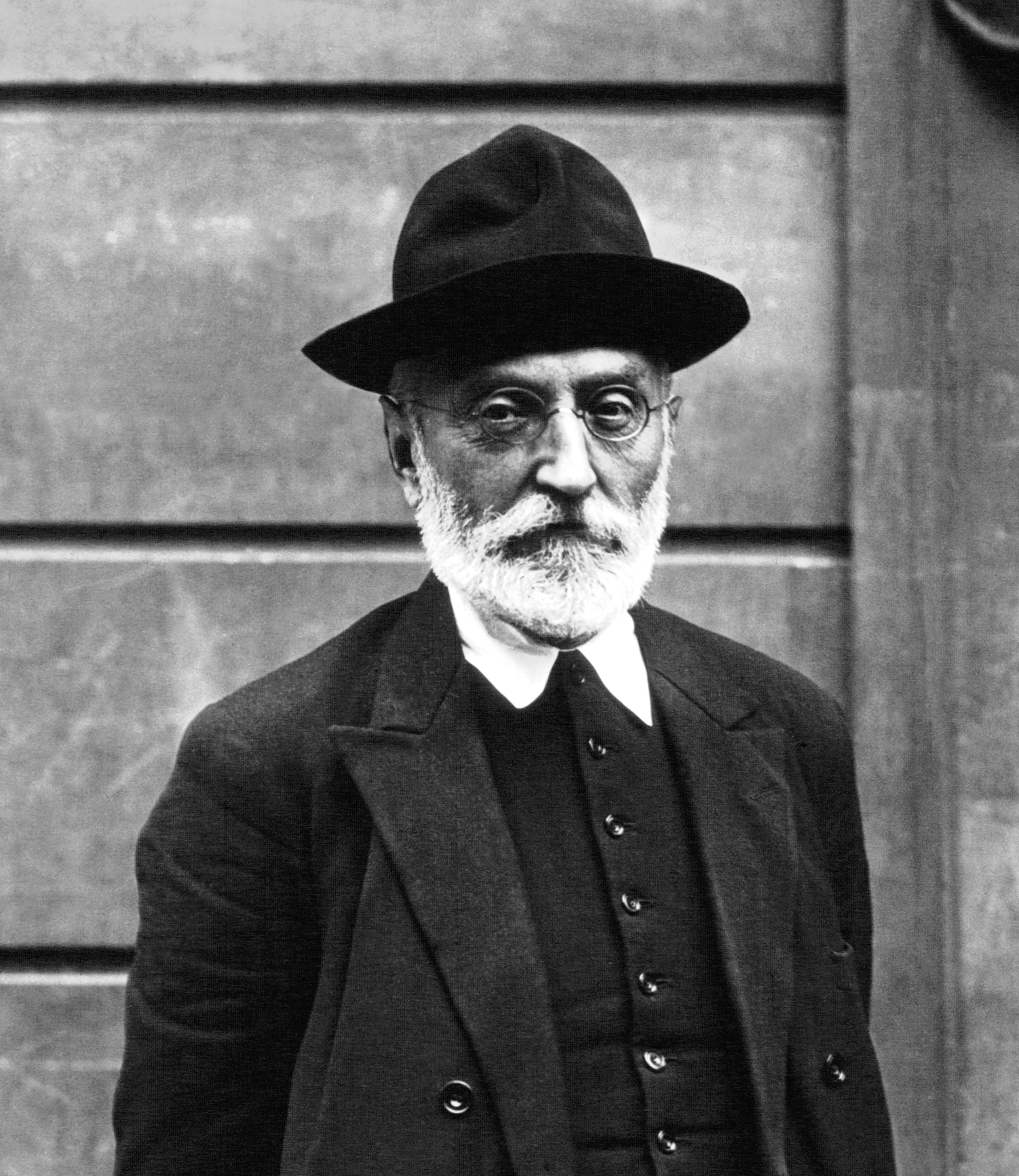The Tragic Sense of Life (1913), VIII : From God to God
Miguel de Unamuno Quotes
Tres novelas ejemplares y un prólogo [Three Exemplary Novels and a Prologue] (1920); Two Mothers
The Tragic Sense of Life (1913), X : Religion, the Mythology of the Beyond and the Apocatastasis
The Tragic Sense of Life (1913), VIII : From God to God
The Tragic Sense of Life (1913), VII : Love, Suffering, Pity
Vanidad del Mundo, cap. xxi.
The Tragic Sense of Life (1913), Conclusion : Don Quixote in the Contemporary European Tragi-Comedy
“Use harms and even destroys beauty. The noblest function of an object is to be contemplated.”
El use estropea y hasta destruye toda belleza. La función más noble de los objetos es la de ser contemplados.
Niebla [Mist] (1914)
The Tragic Sense of Life (1913), Conclusion : Don Quixote in the Contemporary European Tragi-Comedy
The Tragic Sense of Life (1913), I : The Man of Flesh and Bone
San Manuel Bueno, Mártir (1933), Prologue
The Tragic Sense of Life (1913), V : The Rationalist Dissolution
The Tragic Sense of Life (1913), XI : The Practical Problem
The Tragic Sense of Life (1913), X : Religion, the Mythology of the Beyond and the Apocatastasis
The Tragic Sense of Life (1913), IX : Faith, Hope, and Charity
The Tragic Sense of Life (1913), Conclusion : Don Quixote in the Contemporary European Tragi-Comedy
The Tragic Sense of Life (1913), Conclusion : Don Quixote in the Contemporary European Tragi-Comedy
The Tragic Sense of Life (1913), I : The Man of Flesh and Bone
How much substantial truth there is in these gloomy confessions of this man of painful sincerity.
The Tragic Sense of Life (1913), III : The Hunger of Immortality
The Tragic Sense of Life (1913), III : The Hunger of Immortality
The Tragic Sense of Life (1913), I : The Man of Flesh and Bone
The Tragic Sense of Life (1913), II : The Starting-Point
The Tragic Sense of Life (1913), Conclusion : Don Quixote in the Contemporary European Tragi-Comedy
The Tragic Sense of Life (1913), X : Religion, the Mythology of the Beyond and the Apocatastasis
The Tragic Sense of Life (1913), Conclusion : Don Quixote in the Contemporary European Tragi-Comedy
The Tragic Sense of Life (1913), I : The Man of Flesh and Bone
The Tragic Sense of Life (1913), IV : The Essence of Catholicism
The Tragic Sense of Life (1913), VII : Love, Suffering, Pity
The Tragic Sense of Life (1913), VI : In the Depths of the Abyss
The Tragic Sense of Life (1913), V : The Rationalist Dissolution
The Tragic Sense of Life (1913), VII : Love, Suffering, Pity
The Tragic Sense of Life (1913), VIII : From God to God
The Tragic Sense of Life (1913), Conclusion : Don Quixote in the Contemporary European Tragi-Comedy
The Tragic Sense of Life (1913), Conclusion : Don Quixote in the Contemporary European Tragi-Comedy
The Tragic Sense of Life (1913), V : The Rationalist Dissolution
The Tragic Sense of Life (1913), X : Religion, the Mythology of the Beyond and the Apocatastasis
“Martyrs create faith, faith does not create martyrs.”
The Tragic Sense of Life (1913), VIII : From God to God
The Tragic Sense of Life (1913), VI : In the Depths of the Abyss
The Tragic Sense of Life (1913), V : The Rationalist Dissolution
The Tragic Sense of Life (1913), XI : The Practical Problem
The Tragic Sense of Life (1913), Conclusion : Don Quixote in the Contemporary European Tragi-Comedy
The Tragic Sense of Life (1913), VII : Love, Suffering, Pity
The Tragic Sense of Life (1913), X : Religion, the Mythology of the Beyond and the Apocatastasis
The Tragic Sense of Life (1913), IX : Faith, Hope, and Charity
The Tragic Sense of Life (1913), II : The Starting-Point
“There are pretenses which are very sincere, and marriage is their school.”
Tres novelas ejemplares y un prólogo [Three Exemplary Novels and a Prologue] (1920); Two Mothers
The Tragic Sense of Life (1913), IX : Faith, Hope, and Charity
The Tragic Sense of Life (1913), X : Religion, the Mythology of the Beyond and the Apocatastasis
